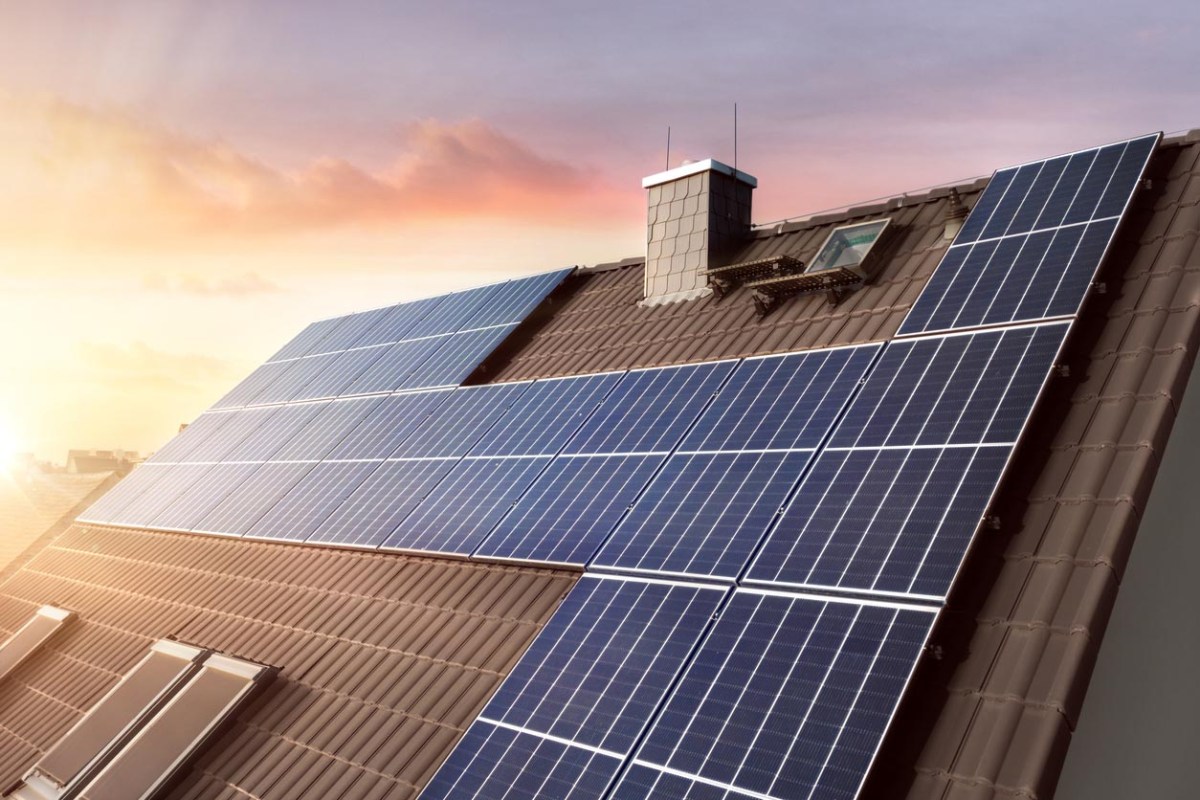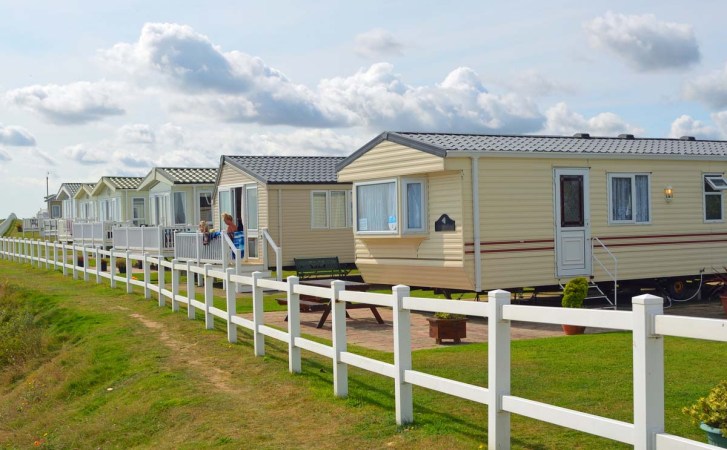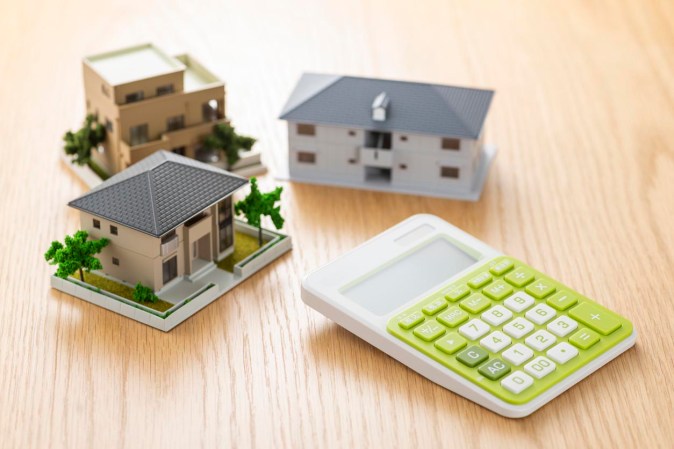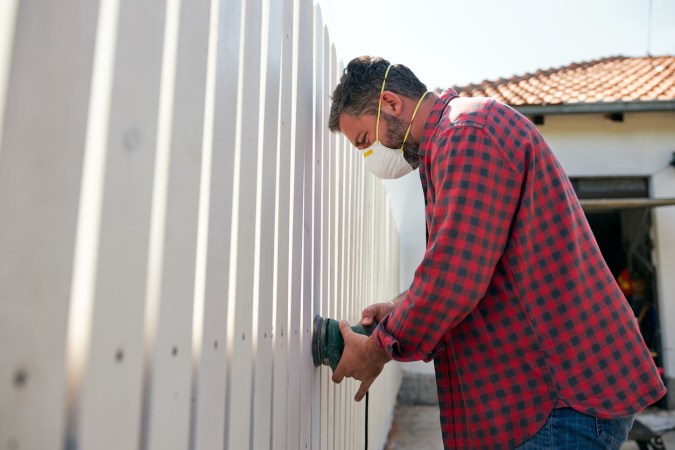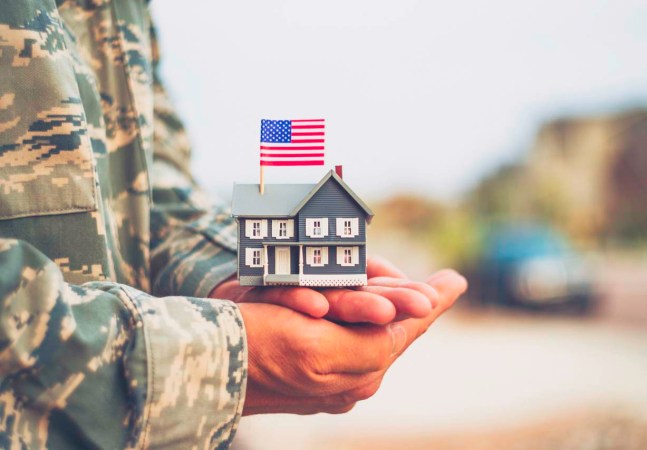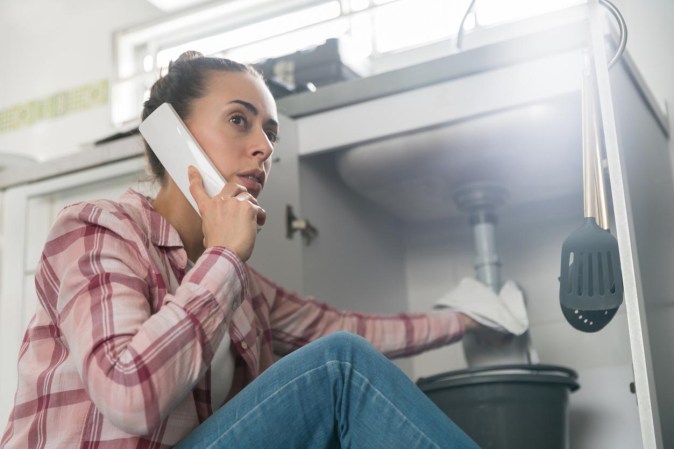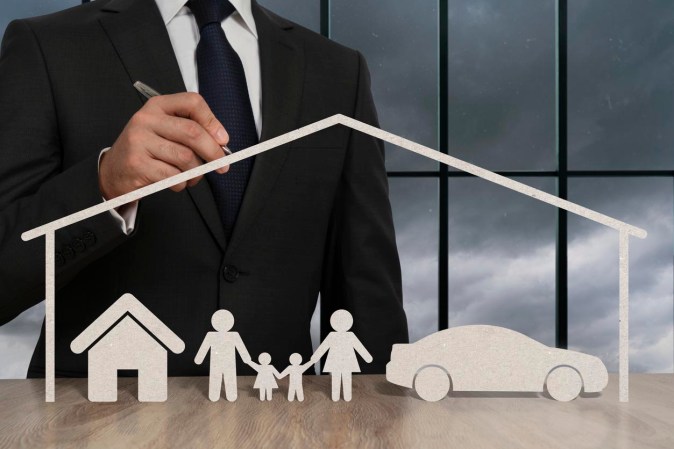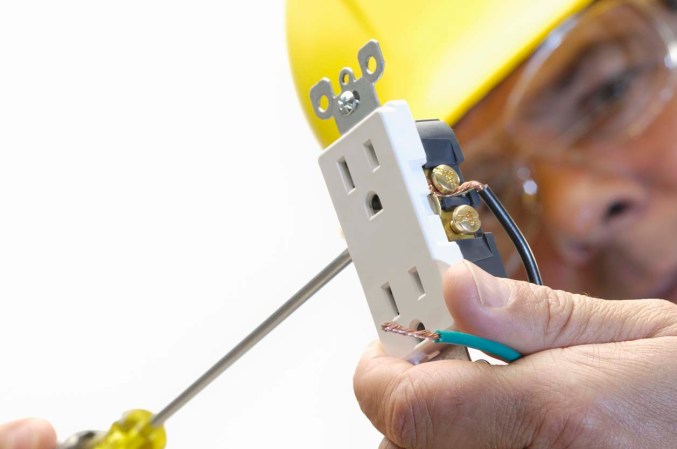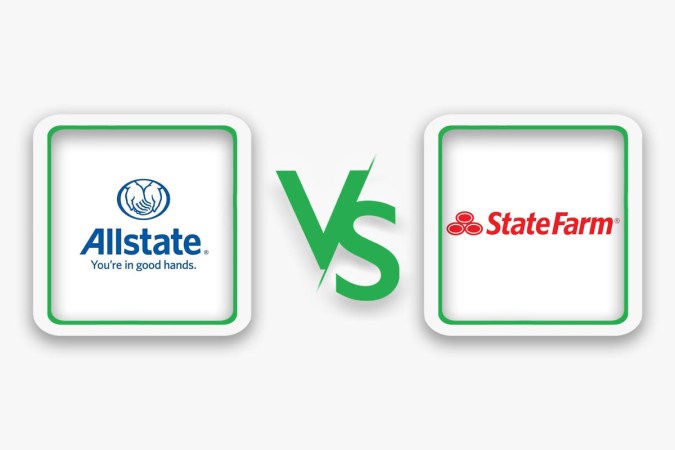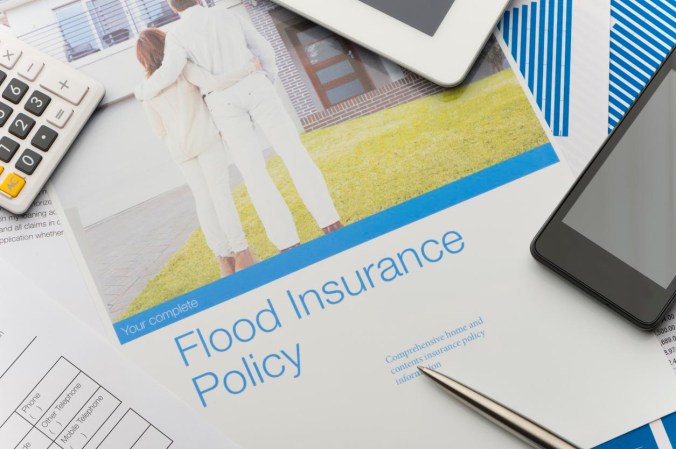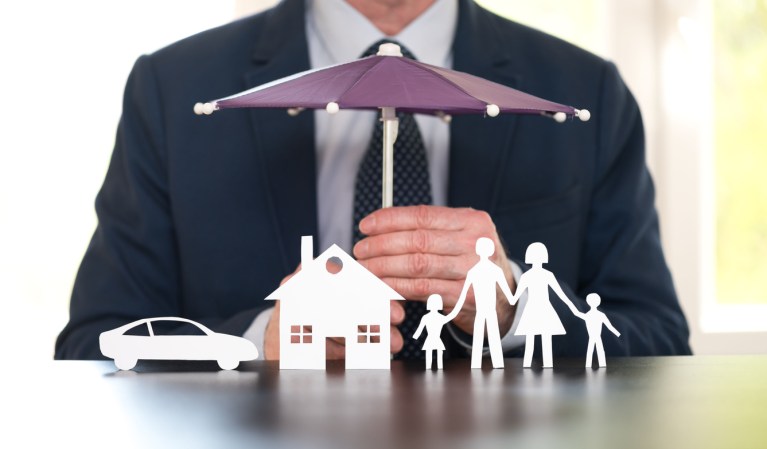We may earn revenue from the products available on this page and participate in affiliate programs. Learn More ›
Q: My spouse and I want to put solar panels on our home as an investment in the property. However, we’re concerned about the cost of replacing panels if they get damaged, and we aren’t sure if our insurance would cover it. Does homeowners insurance cover solar panels?
A: More homeowners are beginning to recognize the benefits of solar panels for their homes. Solar energy panels lower electricity bills and reduce carbon emissions, and they’re also a great way to boost the resale value of a home. However, solar panel costs can be quite high, and homeowners will want to make sure their investment is protected if damage occurs. The answer to the question “Does homeowners insurance cover solar panels?” depends on several factors. While solar panels may be covered by a homeowner’s dwelling coverage if they’re damaged by a covered peril, some policies may exclude solar panel systems entirely. If that’s the case, homeowners may be able to purchase stand-alone solar insurance coverage to help protect their panels.
Homeowners insurance typically covers roof-mounted solar panels as part of a policy’s dwelling coverage.
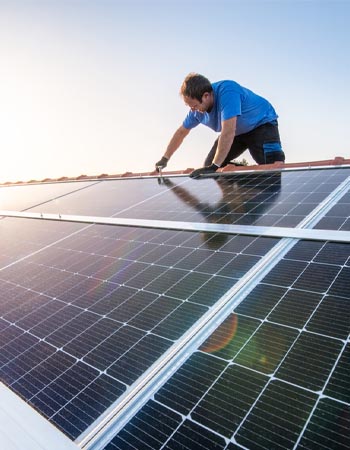
Those who install solar panels for home use on their roofs may be relieved to learn that equipment will often be covered by their homeowners insurance. Roof-mounted solar panels generally fall under the dwelling coverage of a homeowners insurance policy.
Dwelling coverage typically includes roof repair or replacement after a covered peril causes damage. This coverage often extends to solar panels that are permanently attached to the roof. However, it’s a good idea for homeowners to check with their insurance company on coverage exclusions. This can help homeowners know whether their panels are covered before damage occurs. Some policies may specifically exclude solar panels, or they may require a specific endorsement to protect that equipment.
Dwelling coverage protects the structure of the home against perils such as hail, wind, and fire up to the policy limits—this coverage often extends to solar panels.
The dwelling portion of many homeowners insurance policies includes coverage for perils that may damage solar panels, including hail, wind, and fire. For example, if hail damages solar panels that are permanently attached to the roof, then it’s possible a homeowners insurance policy will help cover repairs.
Homeowners may want to keep in mind that coverage for a solar panel system will be determined by their policy limits. Dwelling coverage limits are often quite high, though, as they typically reflect the cost to replace the entire structure of the home in case of a total loss. Additionally, the policy’s deductible will affect the size of the insurance payout. The insurance company will subtract the deductible from the approved payout before disbursing funds to pay for solar panel repairs or replacements. For example, if a $5,000 claim is approved on a policy that has a $1,000 deductible, then the policyholder would receive $4,000 to put toward repairs.
It’s important for a homeowner to carefully check policy terms, though, as some insurance providers will exclude storm-related damage or damage that occurs to solar panels during installation.
Every homeowners insurance policy is different, so policyholders may want to ask their insurance agent about solar panel coverage. Some insurance companies exclude solar panel damage related to specific storm events. For instance, Matt Barber, managing partner at PCF Insurance Services in Spanish Fork, Utah, notes that some companies may deny claims when solar panels are damaged by hail, a peril which is otherwise typically covered under homeowners insurance.
“Most homeowners [insurance] policies will cover damage to solar panels from fire, wind, rain, weight of snow and ice, vandalism, and other normal perils covered by a typical homeowners insurance policy,” he says. “There might be exclusions for hail damage in certain parts of the country, so it’s important to check with your insurance company prior to installing the solar panels.”
It’s also possible for insurance companies to exclude solar panel coverage entirely even if panels are permanently attached to the roof. With that in mind, homeowners may want to check policy terms relating to this type of equipment.
Policies might also exclude damage that happens during solar panel installation. However, the best solar companies (such as SunPower and ADT Solar) often guarantee the quality of their installation work, so they would cover the cost to repair any damage occurring during that process. In that case, the homeowner wouldn’t need to file an insurance claim at all. Although there are DIY solar panel options, homeowners who install panels on their own will need to pay for any repairs out of pocket if they cause damage during installation.
Other structures coverage may cover ground-mounted or detached solar panels, but it will depend on the insurance provider and the policy terms.
A standard homeowners insurance policy generally includes coverage for “other structures,” which typically includes freestanding buildings and structures on the property. For example, other structures coverage often extends to detached garages or garden sheds to protect against covered perils such as fire, hail, and vandalism.
As such, solar panels mounted onto a detached structure, such as a stand-alone garage, may still be protected by homeowners insurance. Additionally, some insurance companies may cover ground-mounted solar panels as part of their other structures policy terms. It’s important to keep in mind that other structures coverage limits are often much lower than a policy’s dwelling coverage limit. Even with the best homeowners insurance, detached structures may only be insured for 10 percent of the policy’s dwelling coverage amount. Because coverage can vary from one insurance provider to another, homeowners who have solar panels that aren’t attached to their main dwelling may want to contact their insurance company for clarification.

Insurance companies may also offer endorsements to extend coverage to detached solar panels such as those installed on top of a carport or shed.
While solar panels installed on a shed or detached garage may be protected by other structures coverage, that insurance may not be enough to cover the cost to repair or replace a damaged unit. As noted, other structures coverage can be limited to 10 percent of the total dwelling coverage limit of a homeowners insurance policy, although policyholders often have the option to raise their policy limits at an added cost.
Even in cases where this equipment is not covered by standard homeowners insurance, solar panel coverage may be available through a separate endorsement. This would add another expense to the policyholder’s insurance costs, but it may be worth it to protect the best solar panels from covered perils.
In addition, some insurance providers offer stand-alone policies to protect detached or ground-mounted solar panels.
If policyholders are unable to get the coverage they want through their homeowners insurance, it may be worth their time to shop around for stand-alone solar panel insurance. Although stand-alone policies that cover solar panels may be offered by some insurance companies, they may also be available through solar panel companies if homeowners purchase and install equipment through them.
Typically, insurance for solar panels covers similar perils as a homeowners insurance policy. Fire and storm damage are all regularly included in solar panel insurance. On the other hand, damage from earthquakes and flooding is typically excluded from coverage. Covered perils and exclusions are generally listed in the fine print of a stand-alone solar panel policy.
State governments could require homeowners to carry additional liability insurance in case their solar panels damage the utility grid or injure a maintenance worker.
While solar panel efficiency can help lower energy costs for homeowners and reduce their carbon footprint, adding solar panels can be a hazard for the utility grid or maintenance workers in some situations. An improperly installed solar panel, for example, could cause damage to the electric grid of the neighborhood. Likewise, a malfunctioning solar panel could produce excess currents that may severely harm utility workers.
Some state and local governments are counteracting these risks by requiring homeowners with solar panels to carry additional liability insurance. While standard homeowners insurance policies include liability coverage, the coverage amount may not meet the local requirements. In those situations, homeowners may need to increase their liability coverage limits or purchase separate umbrella liability coverage to fulfill their obligations as a homeowner with solar panel equipment.
When selecting an insurance policy, homeowners may want to raise their coverage limits to help pay to repair or replace expensive solar panel equipment after a covered loss.
Many homeowners across the country are deciding that solar panels are worth the cost of the up-front investment. Before adding panels, however, it’s a good idea for homeowners to consider their insurance coverage and needs. Although many standard homeowners insurance policies will protect equipment that’s permanently attached to the home’s roof, solar panels won’t always be covered by every insurance provider.
Many insurance companies do offer several ways for homeowners to get the coverage they need, though. Homeowners may be able to simply increase their policy limits, whether it’s for dwelling coverage, other structures coverage, or liability, if they need more insurance to protect their solar panel systems. When reviewing policy terms, homeowners may want to consider their deductible as well to ensure it’s not so high that damage to their solar panel system would fall below that threshold. If the cost to repair solar panel damage is less than the deductible, the insurance company won’t pay out a claim even if it’s covered by the homeowner’s policy.
As an option, homeowners may want to compare the cost of purchasing stand-alone solar insurance or adding an endorsement to their existing homeowners policy. Increasing coverage for solar panels generally increases insurance premiums, so it might be worth it for homeowners to shop around to find the best deal.

